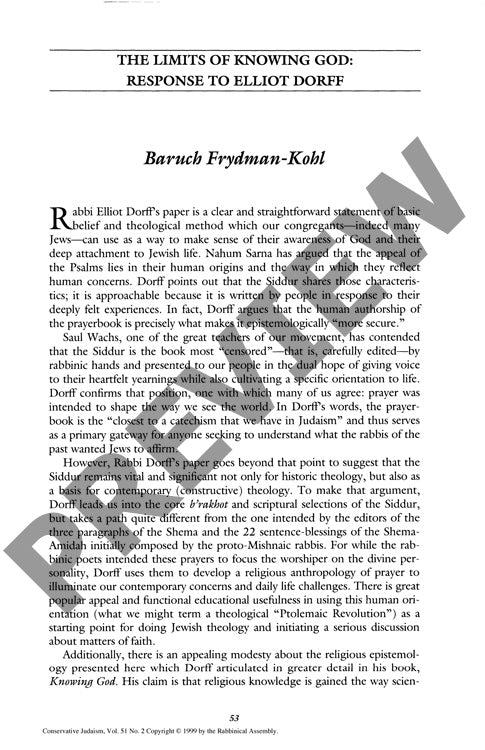The Limits of Knowing God Response to El
Couldn't load pickup availability
Can religious knowledge truly be understood through the same lens we use to comprehend science and literature? Rabbi Elliot Dorff's theological framework suggests so, positioning the Siddur (Jewish prayerbook) as a foundation for modern Jewish theology through a "unified-field" epistemology. Through analysis of key liturgical elements, including the Shema and specific blessings (b'rakhot), Dorff constructs a human-centered theological approach that prioritizes religious anthropology over divine personality. While his methodology demonstrates admirable modesty and broad applicability when addressing natural phenomena, it falters significantly when confronting distinctively Jewish theological concepts like covenant and revelation. Comparative theological analysis and critical examination of epistemological frameworks within Conservative Judaism reveal that Dorff's universalized interpretation of Jewish liturgy, though more accessible, risks reducing religious knowledge to merely another perspective on reality rather than maintaining its unique epistemological status. These findings expose fundamental tensions between universal religious experience and particular covenantal claims that continue to shape Jewish theological discourse.

More Information
-
Physical Description
-
Publication Information
Published 1999
ISBN
-
Publication Credits
Baruch Frydman-Kohl

